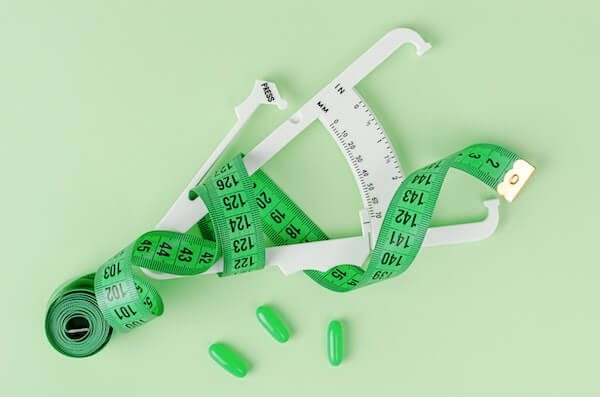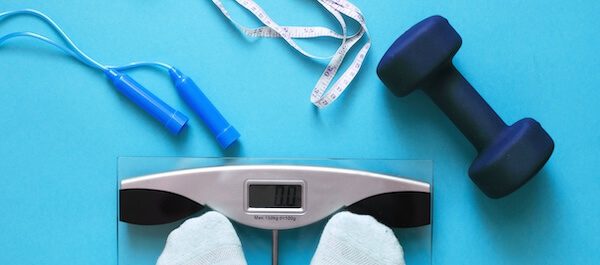Foods to Avoid After Bariatric Surgery
The Critical Role of Diet After Bariatric Surgery
Adhering to a specific diet after bariatric surgery is not just a recommendation—it's a necessity for recovery, sustained weight loss, and long-term health maintenance. Bariatric surgery, including procedures like gastric bypass and gastric sleeve, fundamentally alters the digestive system.
As such, patients must carefully manage their eating habits to avoid complications, facilitate healing, and ensure adequate nutrition.
Understanding which foods to avoid after bariatric surgery is crucial in preventing unnecessary pain, avoiding weight gain, and promoting effective weight loss.
This guide will navigate through the essential dietary changes and restrictions needed to support your weight loss journey and maintain the results achieved through bariatric surgery.
Understanding Bariatric Surgery
What is Bariatric Surgery?
Bariatric surgery encompasses a variety of procedures designed to help individuals lose weight by making alterations to the digestive system.
Some of the most common types of bariatric surgery include gastric bypass surgery and the gastric sleeve procedure, each with specific mechanisms and goals.

Gastric Bypass Surgery
This procedure involves creating a small pouch from the stomach and connecting it directly to the small intestine.
After gastric bypass, swallowed food will go into this small stomach pouch and then directly into the small intestine, bypassing most of your stomach and the first section of your small intestine.
This design reduces the amount of food you can eat and decreases the absorption of nutrients.
Gastric Sleeve Procedure
Also known as the sleeve gastrectomy, this surgery involves removing approximately 80% of the stomach, leaving a tube-shaped stomach about the size of a banana.
The smaller stomach limits the amount of food you can eat by making you feel full sooner following meals.
Both procedures aim to help you lose weight by limiting how much you can eat, with some differences in the approach to changes in hormone levels that affect hunger and satiety, as well as how you absorb nutrients.
Deciding which procedure is right for you involves discussions with your surgeon about your weight loss goals, health condition, and the specific benefits and risks of each surgery.
The Importance of a Post-Surgery Diet

Why Diet Matters After Surgery
After bariatric surgery, the immediate and long-term success of weight loss and maintenance heavily relies on adhering to a specific diet. The surgery itself is only a tool to assist in weight loss; the dietary changes that follow are what truly allow patients to lose weight sustainably and avoid complications.
Post-surgery, the stomach's capacity to hold food is significantly reduced, which necessitates not only smaller meals but also a change in the type of foods consumed. It is essential for patients to:
Maintain proper nutrition
Due to the reduced stomach size and the altered digestive process, patients need nutrient-rich foods that provide sufficient vitamins, minerals, and protein in smaller quantities.
Prevent complications
Certain foods can cause discomfort, dumping syndrome, or blockages in the new, smaller stomach or the intestines.
Support healing
After surgery, the body needs adequate nutrition to heal. High-quality proteins and vitamins from the right kinds of foods are crucial during the healing period.
Avoid weight regain
By understanding and implementing dietary guidelines, patients can avoid foods that are high in empty calories and carbohydrates, which contribute to weight gain.
The diet after bariatric surgery evolves through several stages, from liquids to purees to soft foods, and finally, to a more regular diet.
Each stage is designed to allow the stomach to heal properly while getting accustomed to processing solid foods again.
Ensuring a smooth transition through these stages requires careful planning and adherence to the dietary guidelines provided by healthcare professionals.
MEET OUR BARIATRIC & PLASTIC SURGERY TEAM
- All
- Plastic Surgery
- Bariatric Surgery

Immediate Post-Surgery Diet
First Foods After Surgery
Transitioning back to eating solid foods after weight loss surgery requires a phased approach to accommodate the healing stomach and to prevent common complications like dumping syndrome and dehydration. Bariatric surgery patients typically move through several diet stages:
- Liquid Diet: Immediately following surgery, patients are restricted to a clear liquid diet. This stage includes foods such as broth, unsweetened juice, and decaffeinated tea or coffee. The purpose is to keep the body hydrated while avoiding dehydration and ensuring that the stomach is not strained.
- Protein-Powered Soft Diet: As the stomach begins to heal, patients can incorporate protein-rich liquids like protein shakes and low-fat milk. Protein is crucial for healing, but it’s important that these proteins are easy to digest. High protein foods in liquid form, such as protein powder mixed into shakes, provide the necessary nutrients without stressing the newly adjusted digestive system.
- Pureed Foods: After tolerating liquids, patients move on to pureed foods. This includes non-fibrous vegetables blended into smooth consistencies, cottage cheese, and pureed lean meats. Foods must be blended with enough liquid to achieve the right texture to avoid causing any abdominal pain or blockages.
- Soft Foods: This stage includes foods that are easy to chew and swallow, like cooked vegetables, ground meats, and soft fruits. Patients are encouraged to eat slowly and chew food thoroughly to ease digestion. Common foods during this phase include low fat ground turkey, soft-cooked carrots, and mashed potatoes. It is crucial to continue focusing on high-protein and low-fat choices to support weight loss and muscle maintenance.
- Solid Foods: Gradually, more textured foods are reintroduced. Patients must continue to eat slowly, taking small bites and stopping eating as soon as they feel full. Foods that are tough, dry, or lack nutritional value should continue to be avoided. This includes tough meats, raw vegetables, and fibrous fruits, as they may be difficult to digest and could lead to complications.
Throughout each phase, it is essential for patients to avoid spicy foods, carbonated beverages, and any high-calorie, sugary, or fatty foods that offer little nutritional value and could contribute to weight gain. Keeping a food journal during this period can help patients track their intake and monitor how different foods affect their digestion and recovery.
Guidelines for Drinking Fluids
It is also vital for bariatric patients to drink fluids between meals, not with meals. Drinking too much liquid at meal times can lead to feelings of fullness that prevent adequate food intake and may dilute stomach acids, making digestion less efficient. Patients should aim to drink at least eight cups of fluids daily to avoid dehydration but should do so 30 minutes before or after meals rather than during meals.
Comprehensive List of Foods to Avoid for Bariatric Patients
After bariatric surgery, understanding which foods to exclude from your diet is as crucial as knowing what to include. Here are key types of foods that should generally be avoided to prevent complications, promote healing, and support long-term weight management:
- Fibrous Vegetables: While vegetables are a crucial part of a balanced diet, fibrous options like celery, corn, and certain raw leafy greens can be difficult to digest post-surgery and might cause blockages or discomfort.
- Tough Meats: Red meats or pork chops that are tough or not thoroughly cooked can be hard to chew and digest, potentially leading to pain or a stomach blockage. Opt instead for softer, well-cooked options like ground meats or poultry.
- Spicy Foods: Spicy ingredients can irritate the stomach lining, leading to discomfort and abdominal pain. After surgery, it's best to avoid spicy seasonings and sauces.
- Carbonated Beverages: Soda and other carbonated drinks can cause gas, bloating, and discomfort due to the expanded gases in the newly resized stomach.
- High-Fat Foods: Foods high in fat, including fried foods, buttery dishes, and fatty cuts of meat, can be hard to digest and may contribute to weight gain and other health issues.
- Dry or Hard Foods: Items like nuts, granola, and chips can be challenging to break down, leading to discomfort and risking a return to the operating room to clear blockages.
- Raw Vegetables: Some raw veggies can be hard to digest due to their fibrous nature. Cooked vegetables are usually a safer, more digestible option.
- Fruit Juices and High-Sugar Foods: These can lead to dumping syndrome, a condition where sugar enters the small intestine rapidly and causes symptoms like nausea, vomiting, dizziness, and diarrhea.
- Certain Dairy Products: High-lactose dairy products like regular milk or cream can cause lactose intolerance symptoms in some patients after surgery. Low-fat, low-lactose options such as cottage cheese or Greek yogurt are generally better tolerated.
Maintaining a diet free from these foods while ensuring you are getting enough protein, vitamins, and minerals is essential. Following your dietitian’s advice on dietary restrictions will aid in recovery and contribute to a successful weight loss journey.
Specific Foods and Their Effects on Recovery
After bariatric surgery, understanding how certain foods affect your body is vital for a smooth recovery and maintaining long-term health. Here's how specific foods can impact your recovery process:
- High Protein Foods: Proteins are essential for healing after surgery. Including high-quality protein sources like chicken, fish, eggs, and protein powders in your diet helps ensure proper wound healing and muscle maintenance. However, it's important to choose low-fat protein options to avoid excessive calorie intake.
- Dry Foods: Crackers, toast, and cereal without sufficient liquid can be difficult to swallow and digest, potentially causing discomfort or a sensation of food being stuck (known as "food sticking").
- Fatty Foods: Foods high in fat can delay the emptying of the stomach and lead to increased discomfort, nausea, and potential weight gain. Post-surgery diets should limit fat intake to enhance digestive comfort and support weight loss goals.
- Raw Vegetables and Tough Meats: These can be particularly challenging for the digestive system. They require more gastric effort to break down, which can be painful and ineffective in a healing stomach. Cooking vegetables and choosing tender cuts of meat or ground meats can help alleviate these issues.
- Spicy Foods and Carbonated Beverages: Spicy ingredients may irritate the gastric lining, causing discomfort and inflammation. Carbonated beverages introduce gas into the stomach, which can cause bloating, abdominal pain, and an uncomfortable stretching sensation in the stomach.
- Sugary and High-Carb Foods: Consuming sugar-rich or high-carbohydrate foods can lead to dumping syndrome, where food moves too quickly through the small intestine, causing symptoms like weakness, abdominal cramping, and even diarrhea.
Adopting a mindful approach to eating, focusing on small, balanced meals and being aware of the foods that can disrupt your recovery, is crucial. Tracking your food intake using a food journal can help you and your healthcare provider pinpoint any foods that cause adverse effects and adjust your diet plan accordingly to ensure optimal healing and effective weight management.
Strategies for Eating Post-Surgery
Eating Techniques After Bariatric Surgery
Adopting new eating habits is crucial after bariatric surgery. Here are key strategies to help manage your new dietary needs effectively:
- Eat Slowly and Chew Thoroughly: Taking time to chew food thoroughly helps prevent discomfort and improves digestion. Slow eating allows you to recognize fullness cues better, preventing overeating.
- Small Meals: Your new stomach size can only hold a very small portion at a time. Plan to eat several small meals throughout the day instead of three large ones to accommodate your reduced capacity and avoid discomfort.
- Very Small Portions: Begin with very small amounts of food to test your stomach's tolerance and gradually increase the quantity as advised by your healthcare provider. This helps prevent stretching of the stomach and reduces the risk of dumping syndrome.
- Avoid Dehydration: Drink fluids between meals, not during, to avoid filling your stomach with liquids instead of nutrient-dense foods. Aim for at least eight cups of fluid per day to maintain hydration without compromising stomach space for meals.
Implementing these eating techniques ensures that you get the necessary nutrients without overwhelming your modified digestive system. Proper eating habits post-surgery are not just about maintaining weight loss but also about nurturing your body's healing process and adapting to a healthier lifestyle that supports your long-term health goals.
Embracing New Dietary Habits for Long-Term Success
Successfully navigating your dietary needs after bariatric surgery is pivotal for ensuring sustained weight loss, optimal healing, and overall health improvement. By understanding which foods to avoid and how to manage your eating habits, you can prevent complications and maximize the benefits of your weight loss surgery.
Adhering to the recommended dietary guidelines, focusing on nutrient-dense and properly portioned meals, and avoiding problematic foods will help you maintain your weight loss journey effectively. Remember, the surgery is a powerful tool to help you lose weight, but maintaining these results will depend largely on your ability to adhere to a healthy, balanced diet and make lasting changes to your eating habits.
By committing to these principles, most patients can look forward to not only achieving their weight loss goals but also enjoying a healthier and more active life post-surgery. Always consult with your healthcare provider or a dietitian to tailor your diet plan to your specific needs and ensure that you are getting all the nutrients necessary for a robust recovery and a thriving life after bariatric surgery.
